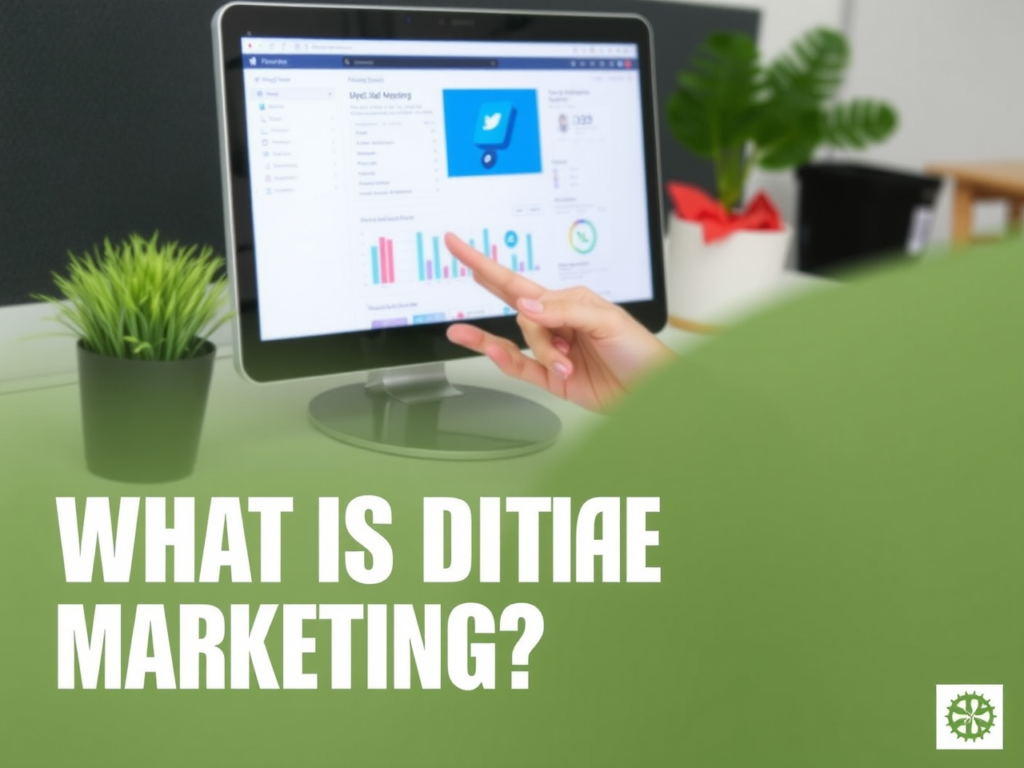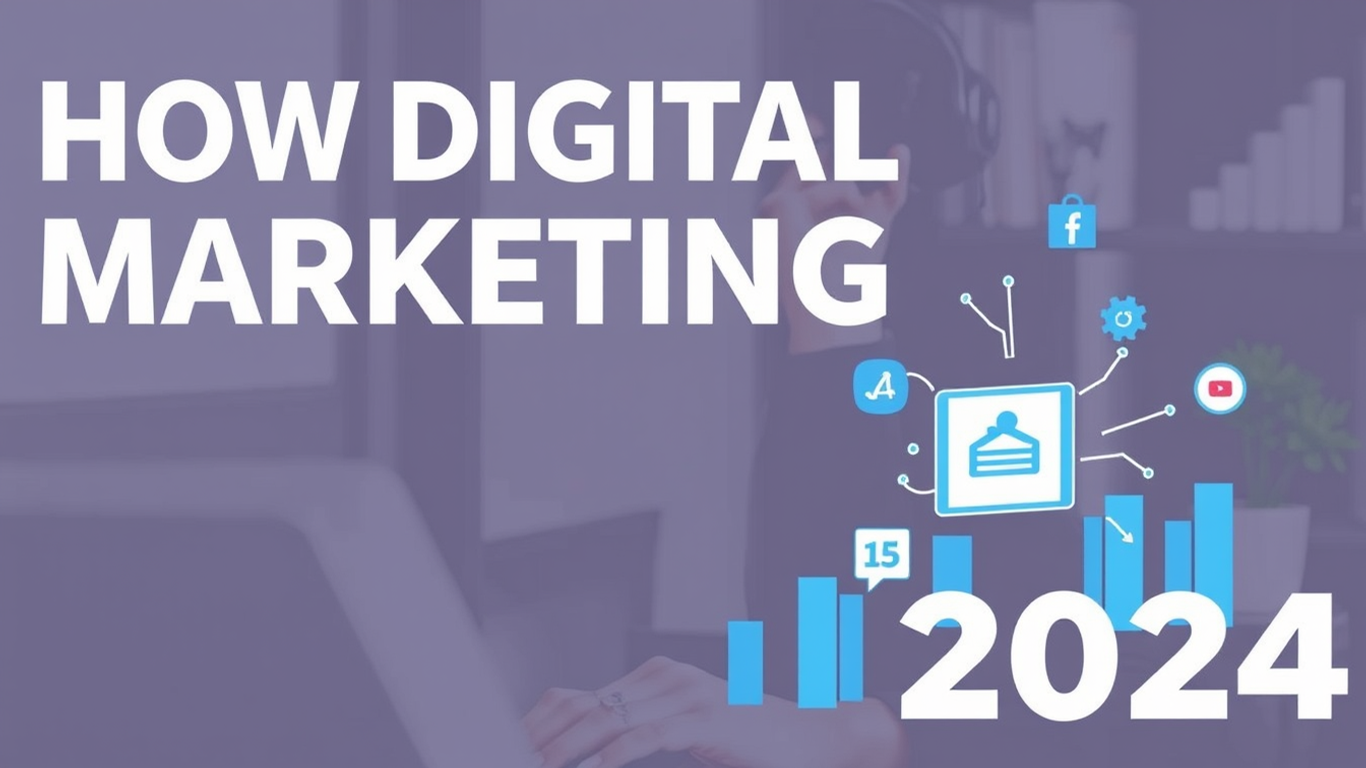
Digital marketing is often confused with online marketing. Digital marketing is the process of promoting a brand, service or product on the internet. Put simply, Digital marketing differs from traditional marketing in that it involves the use of online channels and methods that enable businesses and organizations to monitor the success of their marketing campaigns, often in real time, to better understand what does and doesn’t work. The 21st century has witnessed the developing a web presence in most companies. E-mail was commonplace and there was technology allowing people to manage this fairly easily. Customer relationship management (CRM) systems had been in place for some time to manage databases. Some companies were placing banners on websites with a similar approach to press advertising. Forward- thinking companies were working on their search engine strategy and even working with some affiliates. All of this was online marketing and, in time, online marketing teams and specialists would begin to appear. (Kingsnorth, 2016). The most common form of digital marketing is the website of the organization and the epicenter of all its online activities. In order to drive qualified traffic to a website, or encourage repeat visitors and sales, savvy marketers include a combination of email marketing, search engine optimization (SEO), pay-per-click (PPC) advertising and social media in their strategy.
WHAT IS DIGITAL MARKETING?

The first approaches to digital marketing defined it as a projection of conventional marketing, its tool and strategies, on Internet (Otero and Rolan, 2016). Satya (2015) defined it as ‘online marketing’, ‘web marketing’ or ‘internet marketing’. The term digital marketing became popular overtime, especially in certain countries. In the USA online marketing is still prevalent, in Italy is referred as web marketing but, in the UK, and worldwide, digital marketing has become the most common term, especially after the year 2013. Digital marketing is an umbrella term for the marketing of products or services using digital technologies, mostly on the Internet, but also including mobile phones, display advertising and any other digital terms.
How Digital Marketing Work ?

Digital marketing refers to the use of digital channels, platforms, and technologies to promote products, services, or brands to potential customers. It encompasses a wide range of strategies and tactics designed to reach and engage audiences online. Here’s an overview of how digital marketing works:
Website Development and Optimization
- Website Design: Creating a user-friendly, responsive, and visually appealing website.
- SEO (Search Engine Optimization): Optimizing website content and structure to rank higher in search engine results pages (SERPs) for relevant keywords.
Content Marketing
- Blogging: Writing informative and engaging blog posts to attract and retain an audience.
- Videos: Creating videos for platforms like YouTube to educate or entertain the audience.
- Infographics: Designing visual content to make complex information easy to understand.
Social Media Marketing
- Platforms: Using platforms like Facebook, Instagram, Twitter, LinkedIn, and TikTok to engage with audiences.
- Content: Sharing content, running ads, and interacting with followers to build a community around the brand.
Email Marketing
- Newsletters: Sending regular updates, promotions, and personalized content to a subscriber list.
- Automation: Setting up automated email sequences to nurture leads and drive conversions.
Pay-Per-Click (PPC) Advertising
- Google Ads: Running ads on Google’s search engine and display network.
- Social Media Ads: Creating ads on social media platforms to reach specific demographics.
Affiliate Marketing
- Partnerships: Collaborating with affiliates who promote your products or services in exchange for a commission on sales generated through their efforts.
HOW HAS DIGITAL MARKETING EVOLVED?

So what has changed? The social media revolution has completely changed the internet and consumer behavior. The penetration of board-band has increased speed, internet usage and user expectation with over 40 per cent of the world now online and over 90 per cent in many countries (Internet World Stats, 2015). Analytics has grown to the level where we can understand our consumers’ behavior in real time, including just not their usage statistics but also their demographics and even interests. Mobile has gone smart and tablets have stormed onto the scene and both of these changes have brought along apps. Touchscreen is becoming increasingly common across all devices. Google has become an enormous organization and owns search globally. TVs have gone smart and Bluetooth opens up another level of possibilities. With a naturally ageing population there is now only a very small percentage who are technophobes simply due to age.
HISTORY AND EVOLUTION OF DIGITAL MARKETING

Digital marketing first appeared as a term in the 1990s but, as mentioned above, it was very different world then; Web 1.0 was primarily static content with very little interaction and no real communities. The first banner advertising started in 1993 and the first web crawler (called Web Crawler) was created in 1994 – this was the beginning of search engine optimization (SEO) as we know it (Kingsnorth, 2016). Once Google started to grow at pace and Blogger was launched in 1999 the modern internet age began. Blackberry, a brand not connected with innovation any more, launched mobile e-mail and MySpace appeared. MySpace was the true beginning of social media as we define it today, but it was not as successful as it could have been from a user experience perspective and ultimately that is what led to its downfall. Google’s introduction of AdWords was their real platform for growth and remains a key revenue stream for them to this day. Their innovation, simple interface and accurate algorithms continue to remain. Cookies have been a key development in delivering relevant comments and therefore personalizing user experience. “One of the technologies which really brought information revolution in the society is Internet Technology and is rightly regarded as the third wave of revolution after agricultural and industrial revolution” (Gangeshwer, 2013 ) The first search engine started in 1991 with a network protocol called Gopher for query and search. In 1993, the first clickable banner went live, after which Hot Wired purchased a few banners ads for their advertising. This marked the beginning of a new era, the digital era of marketing. Because of this gradual shift, the year 1994 saw new technologies entering the digital marketplace. The very same year, Yahoo was launched. 1998 saw the birth of Google. Microsoft launched the MSN search engine and Yahoo brought to the market Yahoo web search. In 2000, the internet bubble burst and all the smaller search engines were either left behind or wiped out leaving place for the giants. Then in 2006, digital marketing world saw its first steep surge. At that time, search engine traffic already grown to about 6.4 billion in a single month. Soon, Google began to expand and along with this social networking sites began to emerge. Myspace was the first social networking site followed by Facebook. With this, companies realized that all these new sites are opening new doors of opportunity for them to market their products and brands. Products marketed digitally are now available to customers at all times. Statistics collected by the Marketing tech blog for 2014 show that posting on social media is the top online activity in the US. The average American spends 37 minutes a day on social media. 99% of digital marketers use Facebook to market, 97% use Twitter, 70% use Google+, 69% use Pinterest and 59% use Instagram. 70% of B2C marketers have acquired customers through Facebook. 67% of Twitter users are far more likely to buy from brands that they follow on Twitter. 83.8% of luxury brands have a presence on Pinterest. The top three social networking sites used by marketers are LinkedIn, Twitter, and Facebook.
WHY IS DIGITAL MARKETING IMPORTANT?

Digital marketing offers the ability to reach and engage target audiences in ways which were never before possible. A strong digital marketing strategy can deliver a far higher return on investment (ROI) than traditional marketing methods. People are consuming digital content at a never seen before rate. More than half of the planet now has regular access to the internet, spending an average of 6 hours online per day, presenting massive opportunities for brands and businesses. Such trend will not slow down, as the number of internet-connected portable devices is on the rise. Gartner reported that
smartphones surpassed the sales of feature phones for the first time in 2013, while the 2014 Q3 report from Global web index reports that consumers are now spending more time with online media than they are with traditional forms of media. However, the particularities of the digital world and its appropriation for marketing have fostered the development of channels, formats and languages that have led to tools and strategies that are unthinkable offline. Today, Digital Marketing has become a new phenomenon that brings together customization and mass distribution to accomplish marketing goals. The development of Digital Marketing strategies offer much potential for brands and organizations. Otero and Rolan (2016) put forward some of them are:
- Branding: platform is a great opportunity to build a brand image on the Web due to their scope, presence and constant updates.
- Completeness: the advantages of assembling information through links offer customers the chance to approach the organization in a wider and customs ed way.
- Usability: simple and user-friendly platforms are available for all to improve user experience and allow for their activities.
- Interactivity: internet offers the possibility of having a conversation and therefore generating a positive experience with the brand.
- Visual communication: with digital marketing, marketers have different image and video-based tools. This helps to reach audiences and get them involved in your activities.
- Community connection: internet offers the opportunity for business to connect with their audience.
WHO NEEDS DIGITAL MARKETING SERVICES?

Digital marketing is an important to any business regardless of its size. It can help the business achieve a substantial leap by designing digital marketing strategy to differentiate the organization from its competitors. Without the right digital marketing strategy, organizations may miss out opportunities for growth as more and more people are using digital technology to find information, buy products and assess the services they use. If the organizations prospects are online and the business is not, then it will definitely miss so many opportunities and be left behind by competitors and lose business in the process. Companies need to invest skills and time in creating a digital marketing strategy to leverage the internet and understand the latest marketing techniques to make more knowledgeable decisions in the future. There are also digital marketing firms that can create a strategy to suit different business needs and goals.
THE 4 PS OF MARKETING AND THEIR IMPLICATIONS FOR DIGITAL MARKETING
Product
Price
Place
Promotion


